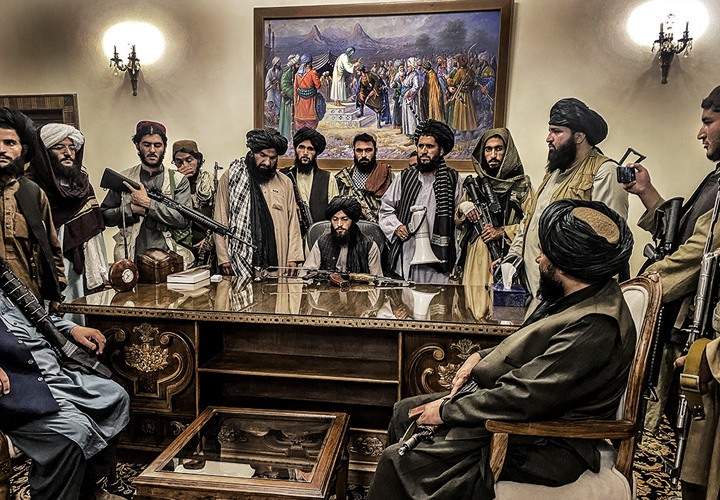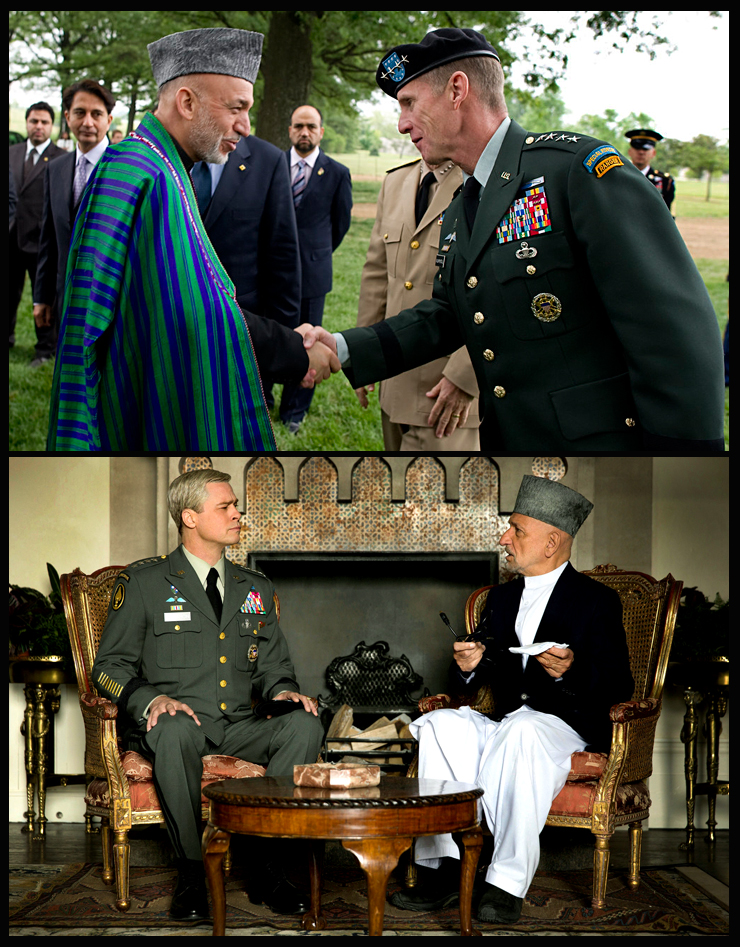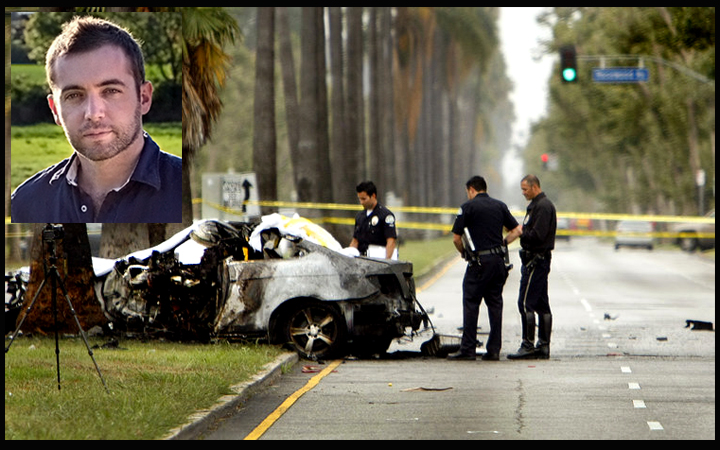When will they ever learn, oh when will they ever learn?
– Pete Seeger
The scene of hundreds of desperate Afghanis running and trying absurdly to latch onto the skin of a massive C17 taxiing down a runway about to take off from Kabul Airport was the iconic image that stuck for me — like the image of people climbing up to get on a Huey atop the US embassy in 1975.

[ A Taliban press conference in Afghanistan’s presidential palace after President Ashraf Ghani fled the country. AP photo. ]
Joe Biden was surprised the Taliban routed the Afghan forces so easily. Biden was surprised because, as seems to be a standard US shortcoming, the intelligence his commanders had been feeding him (and that he paid attention to) did not accord with reality. (It turns out some intel reports had been accurate; but they were ignored.) Biden seems to have favored self-serving delusions about a dim light at the end of the tunnel. As we’ve seen before, our self-perception of magnificence does not permit the hard truth much oxygen.
When I heard the news of the rout, the lines of Pete Seeger’s 1962 song “Where Have All the Flowers Gone?” insisted on reverberating through my head. The voice moved on from when will they ever learn to: Are they even capable of learning?
As a Vietnam veteran member of the anti-war movement for the past 36 years, the rout in Kabul is not a surprise. The anti-war movement envisioned this sort of endgame 20 years ago when the mess was initiated by George W. Bush, Dick Cheney and Donald Rumsfeld. While the anti-war, or peace, movement may have foreseen this kind of end, it has been consistently ignored and marginalized by the government and the mainstream media for decades. It’s a sad fact of life in America that militarism is the overwhelming force that crushes everything in its path.
For someone who served in the prototype for these wars — someone who has read about them, obsessed a lot on the absurdities, traveled to places like the Iraq warzone to see for himself and kvetched impotently on a regular basis — the withdrawal process that culminated in a Taliban rout is a morally painful and tiresome thing. Anger bubbles just below the surface.
WAR MACHINE
At moments like this, my cinephile mind turns to popular culture as the place where America often nails the truth behind its secret, lethal boondoggles: fiction as a tool for truth in a time of rampant bullshit and secrecy. For me, there’s no question the best movie about the debacle in Afghanistan is War Machine, a 2017 tragicomedy produced by, and starring, Brad Pitt as a fictional General Stanley McChrystal. McChrystal was one of a series of commanders appointed to run the Afghan war.

[ The real President Hamid Karzai and General Stanley McChystal, top, and the fictional ones, below, played by Brad Pitt and Ben Kingsley. ]
The subtext of the film is that the Aghan war is a perennial mess. Accordingly, the mess must be regularly re-evaluated. The solution the best and the brightest come up with is not to end the war. Are you kidding? The solution is to fire the general running the mess and to very publicly install a new commander with a fresh look and a new go-get-‘em spirit.
I’ve read that a similar arrangement was policy in Vietnam concerning battalion commanders. While most troops served a year, lieutenant colonels were assigned to lead infantry battalions for six-month tours, at which point he was replaced by a new commander. It was known as “punching your ticket.” It prevented a commander from getting soft and having human feelings about sending young men to die; it also gave the incoming commander a chance to show off his cavalier aggressiveness with the lives of anonymous young men to achieve ever-bigger enemy body counts that would accrue to a promotion to full colonel and, hopefully, brigadier general.
In War Machine, Brad Pitt as General Glen McMahon is a narrative example of this philosophy. The general’s personal entourage of ass-kissers and gofers puff up their boss as he dreams up a new, more aggressive, winning strategy. In a world where secrecy, authoritarianism and an avoidance of democratic dialogue is becoming the norm, it’s a natural solution for a culture dazzled by celebrity. If a debacle is not going well, just get rid of the general at the top and plug in a new general whose arrival on the scene becomes the news. A celebrity-loving media and an apathetic public will be distracted from asking the obvious questions, like: Why are we in this mess? It’s all about image. Don’t look at the war’s foundational delusions and the exasperating lethal details of the mess; look at the new face and his new ideas for winning the war.
The scene where Brad Pitt’s newly arriving four-star general goes to meet President Hamid Karzai (played by Sir Ben Kingsley) is an absurdist gem that speaks volumes. The general is trying to hide his nervousness as he explains his new plan for the war. Karzai looks at the general with a confused, but patient, blank expression. “But, General, that sounds like the old plan.” Anthony Michael Hall plays a fictional version of Major General Michael Flynn, McChrystal’s intelligence director. Hall plays him as a man with an anger management problem, a man who would do anything to support his boss or to avenge a wrong done to him.
The movie is based on The Operators, a book by Michael Hastings, the man who wrote the Rolling Stone article (“The Runaway General”) that led to General McChrystal’s firing by President Obama. Hastings’ death in 2013 at the wheel of a Mercedes that appeared to go ballistic and run into a palm tree (below) at very high speed remains a mystery. His widow and his brother both feel Hastings was especially disturbed at that time and accept it was an accident. But, then, there are reports he felt someone had manipulated his Mercedes; one report claims he was so concerned he asked a neighbor if he could use her car, a request she denied. Richard Clarke, a national security operative, went on record with this:
“There is reason to believe that intelligence agencies for major powers — including the United States — know how to remotely seize control of a car. So if there were a cyber attack on [Hastings’s] car — and I’m not saying there was — I think whoever did it would probably get away with it.”

Hastings’ death may very well have been an accident; he may well have been having a manic episode or even been doing drugs. But, then, he told friends he was dropping out of sight for a while to work on an important new story.
Watching Errol Morris’ very spooky six-part documentary Wormwood immediately brought Hastings’ case to my mind. Wormwood is about the death in 1953 of a scientist with moral questions about his work in a government biological warfare lab. As Morris peels back the onion’s layers, it becomes clear the scientist didn’t jump from a tenth floor hotel room, which was the official story in 1953. A CIA assassination manual at the time outlines a scheme that revolves around pressuring the victim to make him despondent and troubled. Then, ensconce him in a hotel room with a “friend” who takes a convenient bathroom break at the point wetwork boys enter and toss him out the window. The set-up friend, then, testifies how horrible it was to come out of the bathroom to find his disturbed friend had flung himself out the window.
The evidence accumulated over decades by an obsessed son seems pretty clear. The son says, with this kind of evidence an individual would be easily indicted and convicted. But this is the CIA. The film’s troubling conclusion is that while a citizen can sue the US government for a negligent death, he or she cannot sue, or seek criminal charges, for actual intent to kill.
It’s the fog of war rolling over post-WWII, homefront America.
WHAT AMERICA NEEDS TO TALK ABOUT
As US citizens watch the Afghanistan debacle finally collapse with devastating parallels to Saigon 1975, will the obvious, important questions be asked? Here’s five questions to start it off:
1) Why did George W. Bush and company blow off peace feelers sent by the Taliban government, reportedly including a willingness to turn Osama bin Laden over to a third party for trial? Why, instead, did they choose to invade Afghanistan with a massive army? Why, if they could justify an all-out invasion, could they not choose to use intelligence and special-ops surgical strikes like the one that eventually ended the life of Osama bin Laden in Pakistan? It would have been much less costly in lives and destruction.
2) Why did this power-hungry gang of arrogant Washington warriors, then, decide to pull away from its Afghanistan invasion and mobilize a second invasion and occupation of Iraq, a country that had absolutely nothing to do with 9/11?
3) Now saddled with two wars, why didn’t the average American ask more questions? Become critical? Was it a factor of not being informed? Or was it the corruption and apathy that goes with a comfortable life? Why was criticism left to a marginalized peace movement?
4) How did the justification for our military mission in Afghanistan go from getting al Qaeda and Osama bin Laden to bringing democracy and liberating women? Was this pretext for occupation sincere? Or was it someone’s clever, cynical public relations idea to provide cover for a military debacle that no longer made any sense?
And 5) Why is a concern for peace and the avoidance of war always seen as un-patriotic? Why is killing the sine-qua-non of patriotism? At the beginning, when war passions are fueled, peace activists are seen as un-American, while at the end, when the war they criticized has gone south, they’re said to be the cause for the failure and accused of stabbing our warriors in the back?
The idea of seriously analyzing anew our post-WWII imperial wars from Vietnam to Afghanistan makes sense for a nation with decline issues facing a future in uncharted territory. The idea fits nicely with Ex-President Obama’s idea that we’re now involved in a Third Reconstruction.
Why did a nation that came out of World War Two with such power and promise, when Europe was a basket case, decide to waste its treasure assuming the mantle of a bankrupt European colonialism? For example, the Vietnam War was set in motion in 1945 when Harry Truman chose to support the French desire to militarily re-colonize Vietnam, which they’d lost by capitulating to the Japanese. Since Ho Chi Minh and his Viet Minh guerrillas were our friend and ally during WWII, the pathetic fact is the Vietnam War began with a betrayal. And it went downhill from there.
It all began with British settlers’ growing fears of Native American tribal power. The idea of mass killing was unheard of among the native tribes; they were skulkers and settled things by making coup, defined in my dictionary as “(among North American Indians) an act of touching an armed enemy in battle as a deed of bravery, or an act of first touching an item of the enemy’s in order to claim it.” Mass killing was real news for these people.
Feelings of a westward manifest destiny began in the 1630s in places like Connecticut, where British settlers had moved from the Boston area. Scared of the powerful Pequot tribe that ruled the area and unprepared to play the native power games of coup, one dawn morning they mounted a raid and massacred 700 old men, women and children and burned the pallisaded town down. Unbeknownst to the raiders most of the male braves were away on a hunting party. Horrified at the barbarity of the British settlers, the smaller tribes linked with them and hunted down the Pequot braves.
By the time, 250 years on, manifest destiny got to Arizona, Native Americans had wised up enough to mount a real guerilla war under Geronimo against the US cavalry. But, by then, it was too late. US destiny had been writ in blood. Soon, it leaped across the Pacific and colonized the Philippines. After World War Two, it was on to Vietnam. Conquest and domination became a habit.
The fact is we can’t go back and change any of this. But that doesn’t mean we can’t find the courage to recognize the facts and move forward based on a new, liberating understanding toward a better, more inclusive future. To paraphrase Pogo, we’ve seen the obstacles and the obstacles are us.
